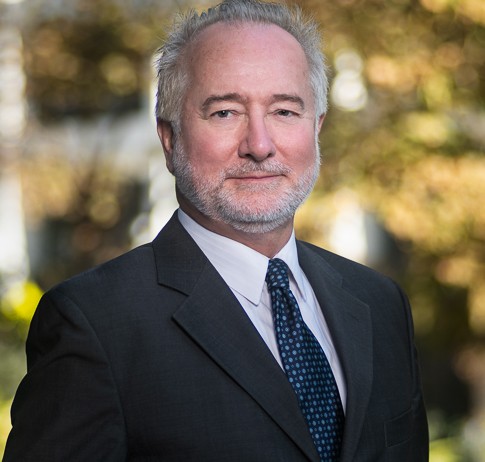Forbes and Bloomberg Tax have done some interesting sleuthing ferreting out the top 10 paid global athletes and, then, computing their individual tax burdens, respectively. What comes across in the tax analysis is the tremendous difference it makes where an athlete is resident in and the amount of the earnings he gets to keep.
Forbes annually compiles a list of the 100 top paid global athletes. See here. Their 2018 list, in yet another nod to the male domination of the sports industry, at least financially, contains no women athletes. To make the list, you have to earn at least US$22.9 million or more (i.e., at No. 100 on the list, Charlotte Hornets NBA player Nicolas Batum).
Bloomberg Tax in its article then calculates the tax burden each athlete in the top 10 on the list faces. See here. The Bloomberg article apparently calculates each athlete’s tax burden based on his top tax rate in the jurisdiction in which he resides. One could take issue with this methodology, since many jurisdictions including the United States and many states, will impose income tax based on an athletes earnings allocable to matches or other competitions in the jurisdiction (referred to as a “jock tax”). Among undoubtedly other states (e.g., Alaska which does not impose an individual income tax), the Bloomberg article notes that Florida, Washington, Nevada, Tennessee, and Texas do not impose jock taxes. So with a jock tax imposed on earnings outside of an athlete’s place of residence, even with a credit for the tax paid outside their country or state of residence, it is possible that due to limitations on such credit, the athlete may end up incurring a higher tax on those earnings than if everything had been earned in their home jurisdiction. However, using the athlete’s maximum tax rate in their jurisdiction of residence seems to be a good rule of thumb for projecting these top athletes’ respective tax burdens. Doing so underscores the divergent tax burdens globally, based on where one resides.
The Bloomberg article underscores the range of rates at which different countries tax their residents (e.g., Portugal with a top 48% rate, Ireland with a top 40% rate, the United States with a 37% top federal rate, Argentina at a 35% top rate, and a 27.5% top rate in Brazil). A wider divergence is reflected in the great range of top state income tax rates, from a zero rate in Nevada for Floyd Mayweather to a 13.3% top California individual tax rate applicable to Golden State Warriors Basketball star Stephen Curry.
The top 10, with their gross 2017 earnings, with the projected tax rates as reported by Forbes and Bloomberg Tax, are:
- #1 Floyd Mayweather in Boxing: US$285 M, taxed at a U.S. 37% rate.
- #2 Lionel Messi in Soccer: US$111 M, taxed at a 35% rate in Argentina.
- #3 Cristiano Ronaldo in Soccer: US$108 M, taxed at a 48% rate in Portugal.
- #4 Conor McGregor in Mixed Martial Arts: US$99 M, taxed at either a 40% Irish rate or the 37% U.S. top rate, depending on which of the two jurisdictions where he resides will tax him.
- #5 Neymar in Soccer: US$90 M, taxed at a 27.5% rate in Brazil.
- #6 LeBron James in Basketball: US$85.5 M, taxed at a 42% rate – the U.S. 37% top rate plus the top Ohio rate of 4.997%.
- #7 Roger Federer in Tennis: US$77.2 M, taxed in Switzerland at a 21.6% to 46.2% rate depending in which Swiss canton he resides.
- #8 Stephen Curry in Basketball: US$76.9 M, netting just 50.6% of his earnings after the imposition of the U.S. federal and California income taxes at top rates of 37% plus 13.3%, respectively.
- #9 Matt Ryan in Football: US$67.3 M, facing tax at a 42.9% on these earnings, after the imposition of the U.S. federal and presumably Georgia income taxes at top rates of 37% and 6%, respectively.
- #10 Matthew Stafford in Football: US$59.5 M, taxed at a 41.2% rate, after the imposition of the U.S. federal and Michigan income taxes at top rates of 37% plus 4.25%, respectively.
Americans have to bear in mind that the United States imposes its federal income tax based on the global income of its citizens, even when they reside abroad. So, moving to that Swiss canton imposing income tax at only a 21.6% maximum rate (or Monaco or the Bahamas, which impose no income taxes) is unlikely to achieve a huge tax savings for a U.S. citizen, since Uncle Sam will come in and tax the balance above the foreign income tax imposed at a 37% maximum rate after a credit for the foreign income tax imposed on foreign source income. Foreign nationals do not generally need to worry about worldwide taxation by their jurisdictions of nationality where they reside outside of their home jurisdiction; virtually all other countries globally impose their income tax on the basis of a taxpayer’s place of residence (or upon the sourcing of the income within the taxing jurisdiction), not on the worldwide incomes of their citizens.
Californians need to bear in mind the quip from the Eagles’ hit Hotel California: “You can check out but you can never leave.” With the highest state income tax rate in the country at 13.3%, the Franchise Tax Board (“FTB”), California’s tax administrator, has every incentive to make sure that California’s well-remunerated residents do not find it easy to lose their California tax residency. The easiest way to do that is a clear, decisive, complete and lengthy break from the state. Keeping a home, family members or other significant contacts in California are red flags to the FTB that an individual’s California tax residency has not actually been terminated. And, yes, the FTB is very aggressive on the California residency issue, particularly for its well-heeled residents in the process of becoming nonresidents.

